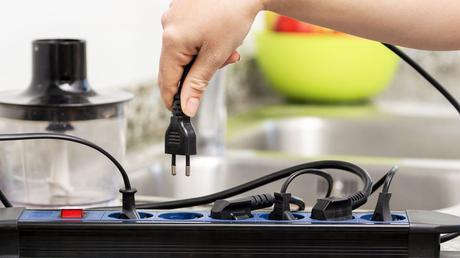Electrical safety at home plays a critical role in maintaining the wellbeing of every member of the household. Given electricity's ubiquity in our daily lives, from powering essential appliances to enabling modern communication and entertainment, having a sound understanding of electrical safety has become a necessity. Electrical issues often masquerade as insignificant annoyances, in actions as simple as flipping a light switch or plugging in a device. Therefore, the need for comprehensive electrical safety education is especially important to prevent mishaps and protect our homes and lives.
In this detailed guide, we delve deeper into practical strategies and professional advice on ensuring electrical safety, identifying household hazards and how you can prevent them effectively to maintain a safe living environment.

Understanding Electrical Safety: Basics and Importance
Electrical safety revolves around understanding and practising preventive measures that protect you from dangerous situations arising from potential electrical mishaps. These potentially dangerous situations range from mild shocks and burns to significant incidents like fires and explosions.
The world of electrical safety can seem convoluted, full of complex terms, regulations, and warning labels. Nonetheless, grasping essential terminologies like circuits, fuses and earth wires can help to simplify matters. A fuse, for example, is designed to protect an electrical circuit by 'blowing' or 'burning out' when there's a sudden surge of electricity, a situation often referred to as an overload. Should this overload situation persist without intervention, it could result in overheating and potential fires.
It is particularly disconcerting when you realise that home electrical accidents occur far more often than you might imagine. The Electrical Safety Foundation International ( ESFI), a non-profit organisation, reports an estimated 51,000 electrical fires occur each year in homes. Every year, these fires cause more than 500 deaths, injure 1,400 individuals and lead to approximately $1.3 billion in residential property damage. As such, understanding and practising electrical safety measures is crucial to prevent such grim accidents.
Common Electrical Hazards at Home and How to Identify Them
Without even realizing it, we often engage with several potential electrical hazards at home. For instance, deteriorating wires, defective appliances or overloaded circuits are typical scenarios that could lead to hazardous situations.
Recognizing the warning signs of these hazards often involves paying close attention to seemingly minor details. Flickering lights might indicate old or faulty wiring, whilst discolored or warm wall outlets could be a sign of unsafe heat build-up. Even rusty or outdated fuse boxes beg an immediate home wiring check as these can pose a significant risk for electrical fires or shocks if left unaddressed. Early awareness and identification when coupled with immediate corrective actions serve as powerful tools for maintaining electrical safety.
Safety Measures: How to Handle and Prevent Electrical Mishaps
Being equipped with some basic knowledge can come in handy when dealing with minor electrical mishaps. For example, in the event of a simple electric overload, safely unplugging the device and replacing a blown fuse can often solve the issue.
When it comes to larger electrical emergencies, such as short circuits or fires caused by electricity, the priority is to ensure personal safety above anything else. This might mean leaving the premises immediately and consequently reaching out for expert help.
Prevention, of course, is better than cure. Prioritizing preventive measures such as regular maintenance checks, being mindful not to overload power outlets, using appropriate extension cords and keeping electrical appliances in optimal condition can do wonders to prevent electrical mishaps.
Role of Professional Electricians in Maintaining Home Electrical Safety
While knowing a bit about electrical systems can be helpful, home electrical safety is no DIY project. Replacing outdated wiring or fixing a faulty circuit breaker requires specialised knowledge and training, which is where professional electricians come in.
Expert Protection for Your Home:- Comprehensive Inspections: Seasoned electricians go beyond basic home wiring checks, thoroughly inspecting indoor and outdoor wiring, switches, outlets, metre setups, and appliances for even hidden dangers.
- Peace of Mind with Repairs: Faced with an electrical issue beyond your understanding? Professionals diagnose and repair problems efficiently, ensuring your safety and restoring functionality.
- Proactive Maintenance: Regular checkups by qualified electricians catch potential issues early, preventing costly repairs and electrical emergencies. They also optimize wiring for efficiency, saving you money on energy bills.
Licensed and Reliable: Choose a professional with a valid license and a positive reputation. Customer reviews and references are valuable resources for making an informed decision.
Remember, your home's electrical system is the backbone of modern living. By trusting a professional electrician, you ensure its safety, efficiency, and peace of mind.
Educating Your Family about Electrical Safety
Educating your family about electrical safety holds the key to implementing measures at a grassroots level. Start with the basics - explaining to your children to steer clear of electrical appliances when their hands are wet or not sticking fingers into electrical outlets can prevent an array of accidents.
Instilling these habits isn't a one-off task. Making children aware of how electricity works and the potential hazards it could pose helps in cultivating long-lasting safety habits. It also empowers them to identify warning signs early on, be it a frayed wire or a flickering bulb at home.
Senior citizens should also be brought into the purview of this educational drive. In essence, the aim should be to create a living environment that's both safe and conducive for all age groups.
In the journey through understanding home electrical safety, we've walked through the essentials, common hazards at home, preventive measures, the critical role of professional electricians and the imperative of education. Safeguarding your home from electrical hazards is an ongoing commitment and one that truly safeguards your family. Adherence to safety protocols, regular maintenance, and professional assistance when needed collectively contribute to creating a home environment where the many conveniences of electricity can be enjoyed risk-free. The assurance of safety renders the indulgence in modern-day comforts all the more enjoyable. Let this comprehensive assessment serve as an encouragement to prioritize electrical safety in your homes.
